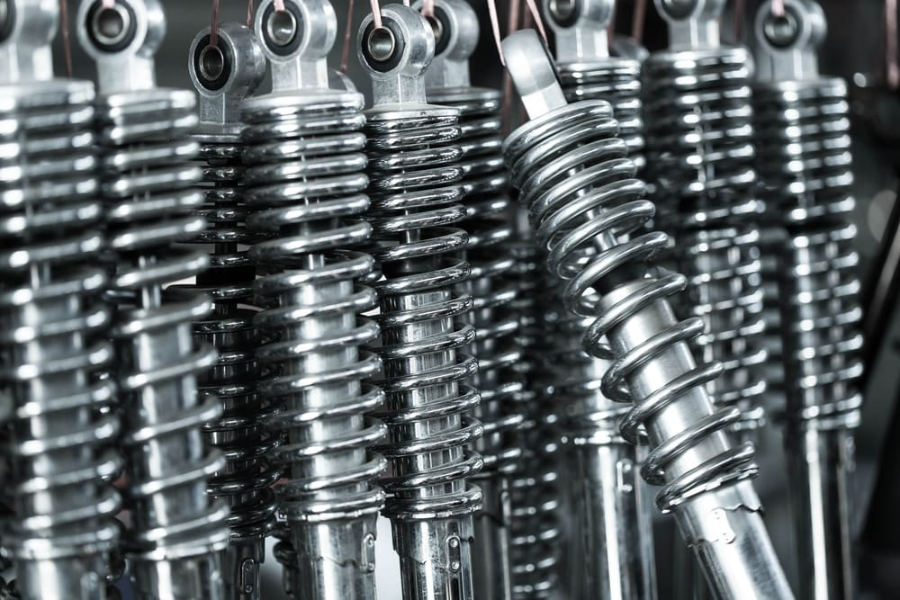Scientists at South Ural State University have proposed an effective low-level controller based on an artificial neural network with a time delay for an adaptive shock absorber. Yuri Rozhdestvensky, DSc, professor of the Institute of Engineering and Technology of SUSU, together with DSc, professor Sergey Alyukov and an engineer of the Design Department of SUSU, an assistant to the Department of Automotive Engineering Alexander Alyukov described the use of an active shock absorber control algorithm based on an artificial neural network in the article “Active shock absorber control based on time-delay neural network” in the highly ranked magazine Energies, indexed in the first quartile of the Scopus scientometric database. The article was published as part of a special issue dedicated to intelligent transport systems.
A promising scientific area
Increasingly, motorists are choosing an adjustable suspension that adapts to any type of road surface. SUSU scientists have found out if it is possible to improve the quality of the adaptive shock absorbers of an adjustable car suspension using an artificial neural network.
Adaptive shock absorbers of a vehicle suspension are a promising area of scientific research, since they can significantly increase smoothness, comfort, as well as handling, stability, and traffic safety. Adaptive shock absorbers have an energy source, which makes it possible to completely eliminate unwanted vertical movements of the body when the vehicle is moving.
“An active shock absorber is a complex technical system with substantially non-linear performance characteristics that have the property of hysteresis, a “late response” to changing conditions. The difficulty in controlling active shock absorbers lies in the fact that the same required values of forces can be achieved by actuators of various nature. So, the shock absorber considered in the article has electromagnetic valves and a hydraulic pump, characterized by a long response time. But with hydraulic pump control errors, the resulting system error can be significantly lower than with solenoid valves,” Yuri Rozhdestvensky explains.
The current designs of adaptive shock absorber control systems use simplified control algorithms based on idealized mathematical models.
Smart shock absorbers will increase the level of comfort when driving a car
Scientists have proposed an active shock absorber control algorithm based on an artificial neural network. Neural networks can approximate any continuous function of many variables with any accuracy depending on the choice of the network structure and its training, which allows them to be used in a wide variety of fields, including control systems.

“The training of the neural network was carried out using a large amount of experimental data, covering various modes of shock absorber operation. The structure of the neural network with time delay was chosen, which allowed it to “remember” the sequence of input signals, and thus take into account the hysteresis property. In the proposed algorithm, the neural network is combined with proportional-integral-differential regulators, which are tuned by modern evolutionary algorithms. The results of the algorithm when performing typical and extreme operating modes of the shock absorber, as well as part of an integrated adaptive suspension control system, show the high efficiency of the proposed solution,” Alexander Alyukov says.
Active shock absorbers have high energy consumption, so the researchers believe that their use in the suspension of electric and hybrid cars seems to be the most promising. Currently, a team of scientists continues to study adaptive vehicle suspensions in cooperation with colleagues from leading world research laboratories and universities in the USA, Germany and Spain.
SUSU is a participant in the 5-100 Project, designed to increase the competitiveness of Russian universities among the world's leading research and educational centers.
Press about us:
Ученые научили нейросеть управлять умными автомобильными амортизаторами
Ученые научили нейросеть управлять умными автомобильными амортизаторами
Ученые обучили нейросеть управлять умными амортизаторами авто
Уральцы научили нейросеть управлять амортизаторами
Ученые научили нейросеть управлять плавностью движения автомобиля




